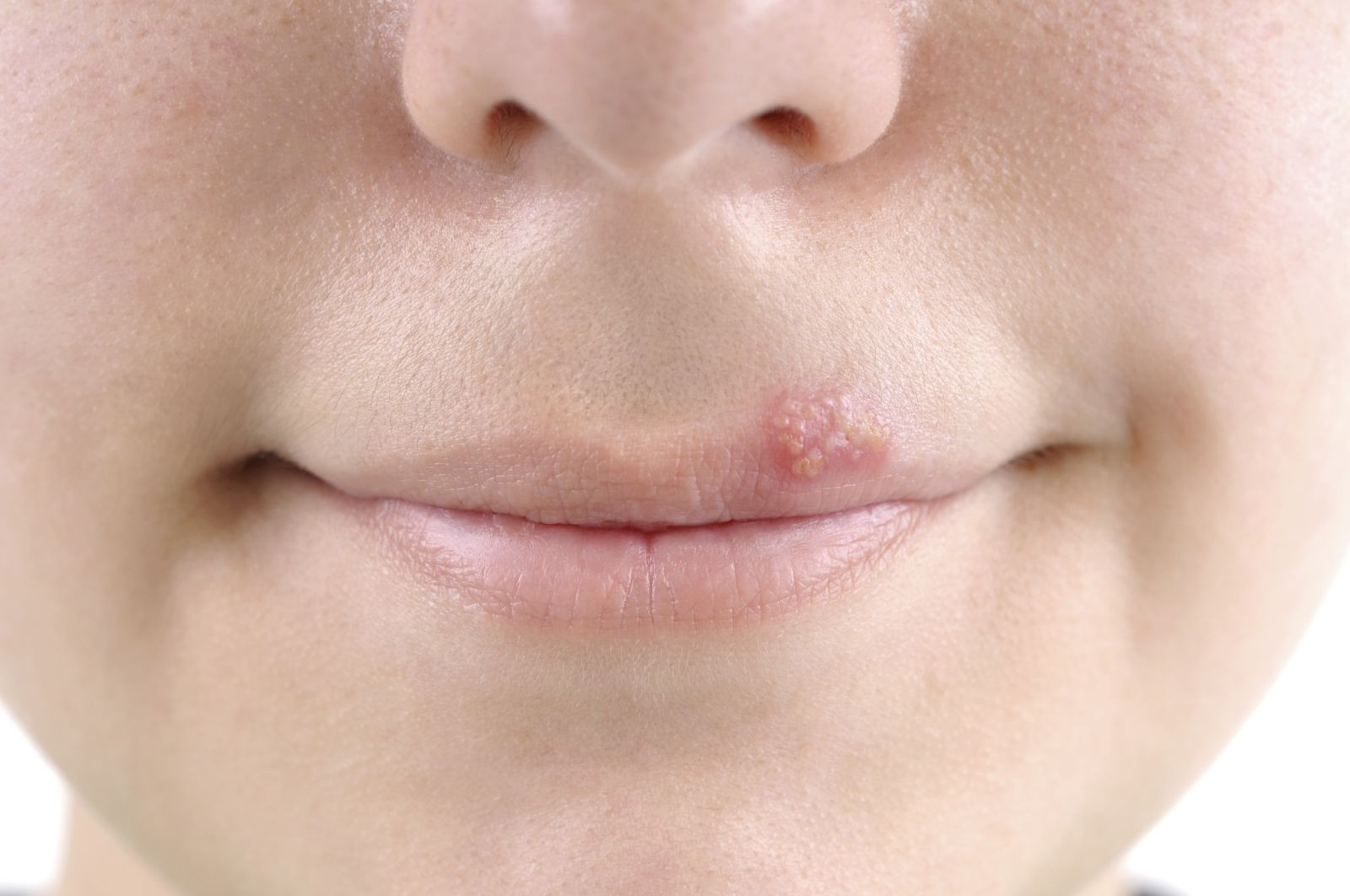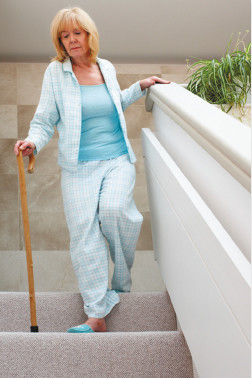
5 timeless habits for better health

What are the symptoms of prostate cancer?

Is your breakfast cereal healthy?

When pain signals an emergency: Symptoms you should never ignore

Does exercise give you energy?

Acupuncture for pain relief: How it works and what to expect

How to avoid jet lag: Tips for staying alert when you travel

Biofeedback therapy: How it works and how it can help relieve pain

Best vitamins and minerals for energy

Should you take probiotics with antibiotics?
Diseases & Conditions Archive
Articles
Getting in shape may improve afib symptoms
Image: iStock |
Boosting your fitness level may help decrease the symptoms of the most common heart rhythm disorder, according to a study published online June 22 by the Journal of the American College of Cardiology. The disorder—atrial fibrillation, or afib—causes an irregular, rapid heartbeat that can lead to shortness of breath, dizziness, and fainting.
The study included 308 people with afib who were also overweight or obese, a condition that raises the risk of afib. The participants answered questions about their afib symptoms and underwent tests to determine their fitness levels, which were described in metabolic equivalents, or METs. (METs measure your level of exertion and are based on how much oxy-gen your body uses during activities; sitting still is 1 MET, and brisk walking is 3.)
Ask the doctor: Statins and liver tests
Q. My doctor used to check my liver function once a year after I started taking a statin drug to lower my cholesterol, but he doesn't anymore. Why not?
A. Your doctor appears to be following the latest recommendations from the American Heart Association and the FDA. When statin medications were first approved, doctors did periodic blood tests to check for liver injury. Three decades later, it is clear that serious liver injury from statins is a rare side effect and that routine blood testing does not help identify people at risk for statin-related liver problems. Therefore, routine monitoring is not a good use of money and time.
Preventing cold sores
Ask the doctor
Q. What's the fastest way to get rid of a cold sore? Is it possible to prevent them?
A. Cold sores, also called fever blisters, are bothersome and painful fluid-filled blisters on or around the lips. They are caused by infection with herpes simplex virus (usually type 1). Cold sores heal on their own in seven to 10 days. However, antiviral medications can modestly shorten the healing period. One-day treatment with the prescription antiviral drugs famciclovir (Famvir) or valacyclovir (Valtrex) shortens cold sore symptoms by one to two days. These oral medications are most effective when taken at the first sign of a cold sore, such as a burning or tingling sensation. Antiviral creams are less effective and need to be applied several times daily for five days.
Best ways to battle irritable bowel syndrome
Get to know your triggers and ways to prevent flare-ups.
| Images: Thinkstock Irritable bowel syndrome may be due to an overgrowth of bacteria in the small intestine or nerve problems. |
Treating melanoma
If a growth or mole looks like a melanoma, the doctor will take a biopsy to confirm the diagnosis. This entails removing either a sample of tissue or else the entire growth and some surrounding skin, and examining the tissue under a microscope to determine whether it's cancer. Depending on how deep a melanoma is, additional tissue may have to be removed. In some cases, lymph nodes may be removed, too. A procedure called sentinel node biopsy can show whether the lymph node nearest the tumor contains any cancer cells. If it does, surgery to remove additional nodes right away can improve survival.
In addition to surgery, treatments for melanoma include immunotherapy (which strengthens the immune system against the cancer), chemotherapy, and radiation therapy. Newer, so-called targeted treatments include drugs that target specific genetic changes seem in people with certain forms of melanoma. For example, about half of melanomas have genetic changes (mutations) in a gene called BRAF, which signals melanoma cells to grow and divide quickly. Drugs that inhibit BRAF, such as vemurafenib (Zelboraf ) and dabrafenib (Tafinlar), and related proteins are now available.
Injections don't improve physical therapy for knees
Physical therapy is helpful for wear-and-tear knee osteoarthritis, especially if you start doing it early. But injecting a painful knee with an anti-inflammatory steroid medication before starting physical therapy offers no additional benefit, according to a clinical trial in JAMA Internal Medicine.
Studies have shown that physical therapy modestly reduces pain and improves daily functioning in people with knee osteoarthritis. That could mean being able to walk farther with less pain or to continue leisure activities such as gardening. Before you start physical therapy, your doctor may offer to inject the knee with a cocktail of anti-inflammatory steroid medication and an anesthetic. Hypothetically, this could make it easier for you to stick with exercise and therefore lead to better results.
Stay behind the wheel longer
Driving assessment programs evaluate your driving history, family concerns, overall health, thinking, and driving reflexes. They can help you brush up on skills and get up to speed on new driving laws. Image: Thinkstock |
A driving assessment program can help identify your strengths and weaknesses and suggest ways to improve your driving skills.
The sense of freedom and independence that comes with driving is as important at 65 as it is at 16. But driving skills may start to falter as we age, an issue many people choose to ignore. "We all seem to be in denial about driving in our older years. No one wants to give it up. The good news is that you may not have to," says Lissa Kapust, a social worker at Harvard-affiliated Beth Israel Deaconess Medical Center.
When medications make you sensitive to sunlight
Avoid sun exposure or wear sunprotective clothing and sunscreen if you’re taking photosensitizing drugs. Image: Thinkstock |
Wear sunscreen, and avoid direct exposure to the sun.
When do you need a new knee?
Intolerable pain or disability can signal that it's time to consider a knee replacement. Image: Thinkstock |
Knee replacements can restore your mobility, but you don't want to get one too soon—or wait too long.
How to avoid a disabling stroke
Strokes hit women hard. Self-care is key to preventing a stroke and minimizing the damage if you have one.
This year an estimated 425,000 women will have a stroke, and 55,000 will die from one. Women are more likely than men to have strokes, and they are also more likely to be disabled or to die from them.

5 timeless habits for better health

What are the symptoms of prostate cancer?

Is your breakfast cereal healthy?

When pain signals an emergency: Symptoms you should never ignore

Does exercise give you energy?

Acupuncture for pain relief: How it works and what to expect

How to avoid jet lag: Tips for staying alert when you travel

Biofeedback therapy: How it works and how it can help relieve pain

Best vitamins and minerals for energy

Should you take probiotics with antibiotics?
Free Healthbeat Signup
Get the latest in health news delivered to your inbox!
Sign Up











